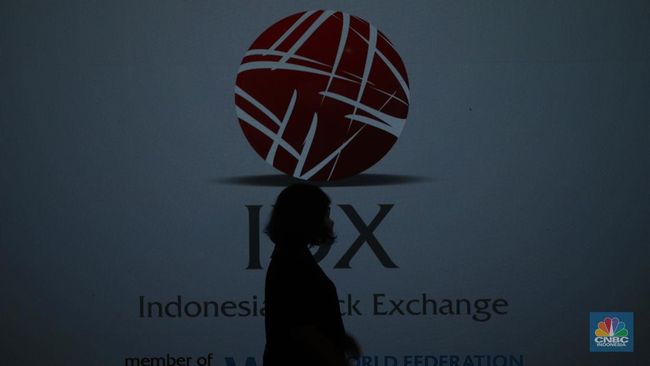Jakarta, CNBC Indonesia – Indonesia’s financial markets closed mixed this week with positive performance recorded by the national stock market, which was able to strengthen, supported by foreign buying amidst optimism for better economic growth in Indonesia.
The Composite Stock Price Index (JCI) actually weakened 0.67% on the last trading day, Friday (25/3/2022), to 7,002.532. However, during the week, the JCI rose 0.68% compared to last weekend’s closing position at 6,954,965.
The weekly rally continued the strengthening that was printed the previous week by 0.47%, the JCI movement this week can also be considered special because it managed to record an all-time high.
During 5 trading days this week, the main reference index of the national stock exchange was able to strengthen for three days, namely Monday, Tuesday and Thursday. The biggest rally occurred on Thursday with an increase of 0.77%.
Bad luck was felt by the rupiah, which ended weakening this week, by 0.74% to Rp. 14,235/US dollar. This correction occurred after last week’s gain of 0.45%.
Market sentiment
Next week there are several things that must be considered by investors, with the majority of issues coming from abroad.
The first is of course related to the Ukraine-Russia war and its implications for the global economy and business sector. As of now, the war in Ukraine could weigh on markets next week as a ceasefire-related breakthrough is unlikely any time soon.
Furthermore, investors also need to pay attention to the volatility of commodity prices, which are increasingly difficult to predict. After tending to weaken during the previous two weeks, this week mining, energy and compact plantation commodities rose.
From Uncle Sam’s country, investors will also pay close attention following reports related to payroll (payroll) US and personal consumption spending data as proxies and clues as to how quickly the Fed will tighten monetary policy.
Recently the US central bank has officially raised its interest rate by 25 basis points (bp) in line with market expectations. However, from within the country, Bank Indonesia still maintains its benchmark interest rate, at least until the next Board of Governors Meeting.
Many financial analysts and economists predict that Indonesia will make at least two interest rate hikes and the fastest it will be in the second quarter of this year. The aggressiveness of the Fed of course also affects how quickly domestic interest rates will rise.
BI Governor, Perry Warjiyo, once again emphasized that the 3.50% interest rate will be maintained until there are signs of a fundamental increase in inflation.
Previously, the top leadership of the Fed has said that in the future they could raise interest rates aggressively up to 50 bps if absolutely necessary.
Furthermore, preliminary readings related to inflation in various parts of the world also deserve careful scrutiny. Several countries that are experiencing acute inflation and are at multi-year highs include the US, UK, euro area, Brazil, Turkey to Russia.
Domestic inflation data will be announced on Friday next week.
Meanwhile, from within the country, BI decided to maintain its benchmark interest rate at the level of 3.5%.
Other global indicators include manufacturing activity and economic growth. Purchasing Manager’s Index (PMI) of Indonesia’s major trading partners will be announced next week including China, Japan, India, South Korea and Australia.
Bond market conditions are also interesting to watch, both globally and nationally. The global bond market weakness continued on Friday in anticipation and response to a cycle of tightening monetary policy by major central banks seeking to tame inflation.
The yield on the US 10-year bond hit 2.5%, the highest since May 2019, the yield on the German 10-year Bund, the benchmark for Europe, rose 0.59% and was the highest since May 2018, while the yield on the French 10-year the result has been above 1%.
Domestic investors still need to pay close attention to the development of the pandemic, even though the government has stated that going home for this year is allowed.
In addition, welcoming the fasting month which will begin next week, the prices of essential goods may rise even higher, which will eventually increase inflation, which is getting closer to the upper limit desired by Bank Indonesia.
CNBC INDONESIA RESEARCH TEAM
(fsd/fsd)
–


